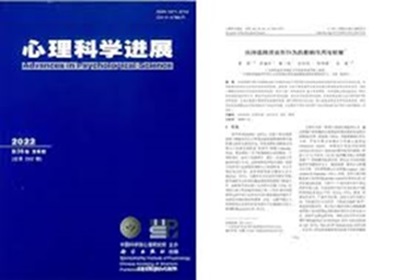Job replacement or job transformation? Definition, consequences, and sources of technology-driven job insecurity
引用次数: 0
Abstract
: During the digital transformation of Chinese enterprises, effectively alleviating and coping with employee job insecurity is crucial for building harmonious and stable labor relations. Although traditional job insecurity research has extensively examined the sources and consequences of job insecurity, it has paid little attention to the rapid development and application of artificial intelligence technology, which is an essential context for the current organizational management practice and research. This study innovatively puts forward a new concept of technology-driven job insecurity in the context of artificial intelligence, reflecting individual perceived job insecurity due to the development and application of artificial intelligence technology. Our study has three objectives. First, we theorize the definition and dimensionality of technology-driven job insecurity and propose job replacement insecurity and job transformation insecurity as the two core dimensions of technology-driven job insecurity. Second, we examine the effects of technology-driven job insecurity on employee work and career outcomes. Third, we explore the sources of technology-driven job insecurity. This study not only enriches the research on job insecurity in the context of artificial intelligence but also has implications for building harmonious and stable labor relations and improving employee well-being at work during the digital transformation of Chinese enterprises.工作替代还是工作转型?技术驱动的工作不安全感的定义、后果和来源
在中国企业数字化转型过程中,有效缓解和应对员工的工作不安全感,对于构建和谐稳定的劳动关系至关重要。虽然传统的工作不安全感研究广泛地考察了工作不安全感的来源和后果,但很少关注人工智能技术的快速发展和应用,而人工智能技术是当前组织管理实践和研究的重要背景。本研究创新性地提出了人工智能背景下技术驱动型工作不安全感的新概念,反映了个体因人工智能技术的发展和应用而感知到的工作不安全感。我们的研究有三个目标。首先,对技术驱动型工作不安全感的定义和维度进行了理论化,提出了工作替代不安全感和工作转换不安全感作为技术驱动型工作不安全感的两个核心维度。其次,我们研究了技术驱动的工作不安全感对员工工作和职业成果的影响。第三,我们探讨了技术驱动的工作不安全感的来源。本研究不仅丰富了人工智能背景下工作不安全感的研究内容,而且对中国企业数字化转型过程中构建和谐稳定的劳动关系、提高员工工作幸福感具有重要意义。
本文章由计算机程序翻译,如有差异,请以英文原文为准。
求助全文
约1分钟内获得全文
求助全文

 求助内容:
求助内容: 应助结果提醒方式:
应助结果提醒方式:


